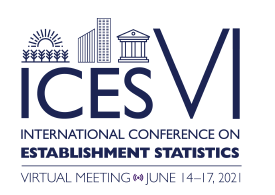All Times ET
Program is Subject to Change
TBD
Library Data in the United States (308144)
*Marisa Pelczar, Institute of Museum and Library ServicesLisa M Frehill, Institute of Museum and Library Services
Keywords: libraries, long-term trends, data use
Like libraries globally, U.S. public libraries have faced an array of challenges in the past decade. (ALIA 2014, Dorner et al. 2017, IMLS 2014 and 2017a, Matarazzo and Pearlstein 2016, Rosa and Storey 2016, Wainwright, et al. 2016) The increase in digital information has led to a realignment of collections and efforts at libraries towards digital content and away from print collections. The “digital revolution” has had important implications for the how libraries provide services as well as the staffing mix at libraries. The following trends have been observed: Public libraries’ educational programming has increased substantially over the past twenty years and there has been a marked increase in the prevalence of electronic materials; the incidence of reference transactions at public libraries has declined; and the expansion of electronic resources has increased the availability of materials to a larger range of patron communities (IMLS 2018).
This poster will present basic information about two sources of data about libraries in the United States: (1) the Public Libraries Survey, which gathers data annually from more than 9,200 U.S. public libraries (>95% annual response rate since its inception in 1988); and (2) the State Library Administrative Agency Survey, which provides insights into the ways in which each of the 50 U.S. states and the District of Columbia support libraries across sectors (annual starting in 1994, changed to biennial in 2010).
